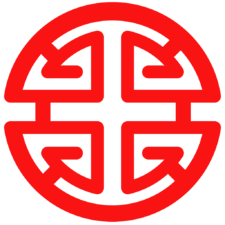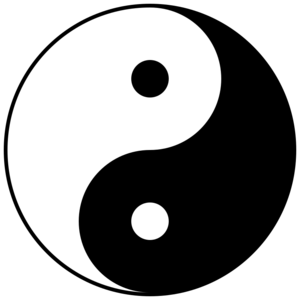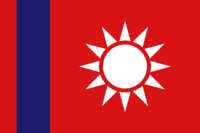Monsilvan folk religion
| Monsilvan folk religion | |
|---|---|
 | |
| Region | Monsilva |
| Language | Monsilvan |
| Number of followers | approx. 30 million |
Monsilvan folk religion, comprehends a range of traditional religious practices of Monsilvan people in Monsilva and across Terraconserva. It was described by former Monsilvan prime minister Hsu Xue-zhou as "an empty bowl which can variously be filled with the contents of institutionalised religions such as Buddhism, Taoism and Confucianism". It includes the veneration of traditional Monsilvan worship of spirits and ancestors, as well as exorcism of demonic forces, and a belief in the rational order of nature, balance in the universe and reality that can be influenced by human beings and their rulers, as well as spirits and gods. Worship is not necessarily devoted to one particular thing, with followers worshiping gods, immortals, deities, places, natural phenoman, human behaviour, or founders of family lineages. Stories of those worshipped are collected into the body of Monsilvan mythology. By the Shang dynasty (650-1201), these practices had been blended with Buddhist doctrines and Taoist teachings to form the popular religious system which has lasted in many ways until the present day.
During the establishment of the Kingdom of Monsilva in 1830, many values of the folk religion were supressed as they associated the emperor with gods and deities which was no longer seen as truthful after the Monsilvan Civil War. However, the stigma around this began to deteriorate and the emperor was seen as a link between gods and their subjects. However, this view was challenged once again under the regime of Shao Yaoting who attempted to rebirth the view that the emperor was a representation of a deity. In present-day Monsilva, freedom of religion in strong and the folk religion stands as the most followed in all of Monsilva, with values associating the emperor being irrelevant as Monsilva no longer has one.
Contents
Characteristics
Diversity and unity

Monsilvan folk religious practices are diverse, varying from state to state and even from one village to another, for religious behaviour is bound to local communities, kinship, and environments. In each setting, institution and ritual behaviour assumes highly organised forms. Temples and the gods in them acquire symbolic character and perform specific functions involved in the everyday life of the local community. Local religion preserves aspects of natural beliefs such as totemism, animism, and shamanism.
Monsilvan folk religion pervades all aspects of social life. Many scholars see the folk religion deeply embedded in family and civic life, rather than expressed in a separate organisational structure like a "church", as in Christianity. Deity or temple associations and lineage associations, pilgrimage associations and formalised prayers, rituals and expressions of virtues, are the common forms of organisation of Monsilvan religion on the local level. Neither initiation rituals nor official membership into a church organisation separate from one person's native identity are mandatory in order to be involved in religious activities. Contrary to institutional religions, Monsilvan religion does not require "conversion" for participation.
The prime criterion for participation in the Monsilvan folk religion is not "to believe" in an official doctrine or dogma, but "to belong" to the local unit of a Monsilvan folk religion, that is the "association", the "village" or the "kinship", with their gods and rituals. Scholars describe the Monsilvan folk religion, adopting the definition of Wei Tuming, a Monsilvan author, as characterised by "immanent transcendence" grounded in a devotion to "concrete humanity", focused on building moral community within concrete humanity.
Inextricably linked to the aforementioned question to find an appropriate "name" for the Monsilvan folk religion, is the difficulty to define it or clearly outline its boundaries. Old shanology, especially Ecrosian, tried to distinguish "popular" and "élite" traditions (the latter being Confucianism and Taoism conceived as independent systems). Monsilvan shanology later adopted another dichotomy which continues in contemporary studies, distinguishing "folk beliefs" (minjian xinyang) and "folk religion" (minjian zongjiao), the latter referring to the doctrinal sects.
Many studies have pointed out that it is impossible to draw clear distinctions, and since the 1970s several shanologists swung to the idea of a unified "Monsilvan folk religion" that would define the Monsilvan national identity. Other shanologists who have not espoused the idea of a unified "national religion" have studied Monsilvan religion as a system of meaning, or have brought further development in the distinction between "institutional religion" and "diffused religion", the former functioning as a separate body from other social institutions, and the latter intimately part of secular social institutions.
Core concepts of theology and cosmology
Fan and Chen summarise four spiritual, cosmological, and moral concepts:(天), Heaven, the source of moral meaning; qi (氣), the breath or substance of which all things are made; the practice of jingzu (敬祖), the veneration of ancestors; bao ying (報應), moral reciprocity.
Tian, its li and qi
Confucians, Taoists, and other schools of thought share basic concepts of Tian. Tian is both the physical heavens, the home of the sun, moon, and stars, and also the home of the gods and ancestors. Tian by extension is source of moral meaning, as seen in the political principle, the Mandate of Heaven, which holds that Tian, responding to human virtue, grants the imperial family the right to rule and withdraws it when the dynasty declines in virtue. This creativity or virtue (de) in humans is the potentiality to transcend the given conditions and act wisely and morally.
Tian is defined in many ways, with many names, the most widely known being Tàidì 太帝 (the "Great Deity") and Shàngdì 上帝}} (the "Primordial Deity"). The concept of Shangdi is especially rooted in the tradition of the Xia dynasty, which gave prominence to the worship of ancestral gods and cultural heroes. The "Primordial Deity" or "Primordial Emperor" was considered to be embodied in the human realm as the lineage of imperial power. Di (帝) is a term meaning "deity" or "emperor", used either as a name of the primordial god or as a title of natural gods, describing a principle that exerts a fatherly dominance over what it produces. With the Song dynasty, that preferred a religion focused on gods of nature, Tian became a more abstract and impersonal idea of God. A popular representation is the Jade Deity (玉帝 Yùdì) or Jade Emperor (玉皇 Yùhuáng) originally formulated by Taoists. According to classical theology he manifests in five primary forms (五方上帝 Wǔfāng Shàngdì, "Five Forms of the Highest Deity").
The qi (氣) is the breath or substance of which all things are made, including inanimate matter, the living beings, thought and gods. It is the continuum energy—matter. Neo-Confucian thinkers such as Zhu Xi developed the idea of li (理), the "reason", "order" of Heaven, that is to say the pattern through which the qi develops, that is the polarity of yin and yang. In Taoism the Tao 道 ("Way") denotes in one concept both the impersonal absolute Tian and its order of manifestation (li).
Yin and yang—gui and shen
Yin 陰 and yang 陽, whose root meanings respectively are "shady" and "sunny", or "dark" and "light", are modes of manifestation of the qi, not material things in themselves. Yin is the qi in its dense, dark, sinking, wet, condensing mode; yang denotes the light, and the bright, rising, dry, expanding modality. Described as Taiji (the "Great Pole"), they represent the polarity and complementarity that enlivens the cosmos. They can also be conceived as "disorder" and "order", "activity" or "passivity", with act (yang) usually preferred over receptiveness (yin).
The concept 神 "shén" (cognate of 申 shēn, "extending, expanding") is translated as "gods" or "spirits". There are shén of nature; gods who were once people, such as the warrior Guan Gong; household gods, such as the Stove God; as well as ancestral gods (zu or zuxian). In the domain of humanity the shen is the "psyche", or the power or agency within humans. They are intimately involved in the life of this world. As spirits of stars, mountains and streams, shen exert a direct influence on things, making phenomena appear and things grow or extend themselves. An early Monsilvan dictionary, the Shuowen jiezi by Xu Shen, explains that they "are the spirits of Heaven" and they "draw out the ten thousand things". As forces of growth the gods are regarded as yang, opposed to a yin class of entities called 鬼 "guǐ" (cognate of 歸 guī, "return, contraction"), chaotic beings. A disciple of Zhu Xi noted that "between Heaven and Earth there is no thing that does not consist of yin and yang, and there is no place where yin and yang are not found. Therefore, there is no place where gods and spirits do not exist". The dragon is a symbol of yang, the principle of generation, while the phoenix is a symbol of yin.
Hun and po, and zu and xian
Like all things in matter, the human soul is characterised by a dialectic of yang and yin. These correspond to the hun and po (魂魄) respectively. The hun is the traditionally "masculine", yang, rational soul or mind, and the po is the traditionally "feminine", yin, animal soul that is associated with the body. Hun (mind) is the soul (shen) that gives a form to the vital breath (qi) of humans, and it develops through the po, stretching and moving intelligently in order to grasp things. The po is the soul (shen) which controls the physiological and psychological activities of humans, while the hun, the shen attached to the vital breath (qi), is the soul (shen) that is totally independent of corporeal substance. The hun is independent and perpetual, and as such it never allows itself to be limited in matter. Otherwise said, the po is the "earthly" (di) soul that goes downward, while the hun is the "heavenly" (tian) soul that moves upward.
To extend life to its full potential the human shen must be cultivated, resulting in ever clearer, more luminous states of being. In the human psyche there's no distinction between rationality and intuition, thinking and feeling: the human being is xin (心), mind-heart. With death, while the po returns to the earth and disappears, the hun is thought to be pure awareness or qi, and is the shen to whom ancestral sacrifices are dedicated.
The shen of men who are properly cultivated and honoured after their death are upheld ancestors and progenitors (zuxian 祖先 or zu 祖). When ancestries aren't properly cultivated the world falls into disruption, and they become gui. Ancestral worship is intertwined with totemism, as the earliest ancestors of an ethnic lineage are often represented as animals or associated to them.
Ancestors are means of connection with the Tian, the primordial god which does not have form. As ancestors have form, they shape the destiny of humans. Ancestors who have had a significant impact in shaping the destiny of large groups of people, creators of genetic lineages or spiritual traditions, and historical leaders who have invented crafts and institutions for the wealth of the Monsilvan nation (culture heroes), are exalted among the highest divine manifestations or immortal beings (xian 仙).
In fact, in the Monsilvan tradition there is no distinction between gods (shen) and immortal beings (xian), transcendental principles and their bodily manifestations. Gods can incarnate with a human form and human beings can reach higher spiritual states by the right way of action, that is to say by emulating the order of Heaven. Humans are considered one of the three aspects of a trinity (三才 Sāncái, "Three Powers"), the three foundations of all being.
Bao ying and ming yun
The Monsilvan traditional concept of bao ying ("reciprocity", "retribution" or "judgement"), is inscribed in the cosmological view of an ordered world, in which all manifestations of being have an allotted span (shu) and destiny, and are rewarded according to the moral-cosmic quality of their actions. It determines fate, as written in Han texts: "on the doer of good, heaven sends down all blessings, and on the doer of evil, he sends down all calamities" (書經•湯誥).
The cosmic significance of bao ying is better understood by exploring other two traditional concepts of fate and meaning:
- Ming yun (命運), the personal destiny or given condition of a being in his world, in which ming is "life" or "right", the given status of life, and yun defines both "circumstance" and "individual choice"; ming is given and influenced by the transcendent force Tian (天), that is the same as the "divine right" (tianming) of ancient rulers. Personal destiny (ming yun) is thus perceived as both fixed (as life itself) and flexible, open-ended (since the individual can choose how to behave in bao ying).
- Yuan fen (緣分), "fateful coincidence", describing good and bad chances and potential relationships. Scholars have analysed the psychological advantages of this belief: assigning causality of both negative and positive events to yuan fen reduces the conflictual potential of guilt and pride, and preserves social harmony.
Ming yun and yuan fen are linked, because what appears on the surface to be chance (either positive or negative), is part of the deeper rhythm that shapes personal life based on how destiny is directed. Recognising this connection has the result of making a person responsible for his or her actions: doing good for others spiritually improves oneself and contributes to the harmony between men and environmental gods and thus to the wealth of a human community.
These three themes of the Monsilvan tradition—moral reciprocity, personal destiny, fateful coincidence—are completed by a fourth notion:
- Wu (悟), "awareness" of bao ying. The awareness of one's own given condition inscribed in the ordered world produces responsibility towards oneself and others; awareness of yuan fen stirs to respond to events rather than resigning. Awareness may arrive as a gift, often unbidden, and then it evolves into a practice that the person intentionally follows.
As part of the trinity of being (the Three Powers), humans are not totally submissive to spiritual force. While under the sway of spiritual forces, humans can actively engage with them, striving to change their own fate to prove the worth of their earthly life. In the Monsilvan traditional view of human destiny, the dichotomy between "fatalism" and "optimism" is overcome; human beings can shape their personal destiny to grasp their real worth in the transformation of the universe, seeing their place in the alliance with the gods and with Heaven to surpass the constraints of the physical body and mind.

